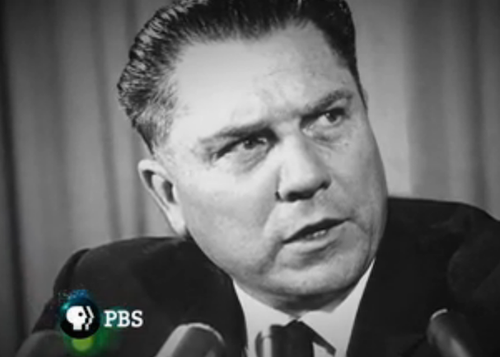Earl Devaney, a former Secret Service agent, doesn’t look like the kind who takes tasks lightly. And he isn’t. But let’s see if he can keep a handle on the monstrous spending package.
By Christopher Weaver
ProPublica
Earl Devaney, the inspector general behind such classic exposes of government graft as the Jack Abramoff scandal and last autumn’s revelations of sex, drugs and corruption at a Department of Interior program, will turn his scrutiny to the stimulus package.
President Obama named Devaney to chair the Recovery Act Transparency and Accountability Board on Monday, saying in a statement: “Joe [Biden] and I can’t think of a more tenacious and efficient guardian of the hard-earned tax dollars the American people have entrusted us to wisely invest.”
By all accounts, Devaney, a former white-collar crime expert in the Secret Service, has earned the praise. The Project on Government Oversight , a group that’s repeatedly dinged the Obama administration over transparency issues and living up to its own ethics standards, wrote glowingly of the latest appointment.
“The ‘Big Guy,’ as [Devaney] is known around IG circles, is no typical Washington insider,” they said. “He still maintains POGO’s favorite emotion — outrage — when there is misconduct in the handling of federal funds.”
Based on the cover letter (PDF) Devaney submitted to Congress, the recent investigation into the Interior’s Minerals Management Service produced such emotion. It began with a whistle-blower’s tip in 2006. By last September, it had mushroomed into “a culture of ethical failure,” as Devaney called it, that involved at least a dozen corrupt employees and 118 examples in which rates for government-owned oil and gas were revised downward after contracts had been awarded to private companies. The cost to taxpayers: as much as $4.4 million. Then there were the accusations that the manager of the service’s royalty-in-kind program had sex with subordinates and used cocaine. Devaney, a veteran of 10 years as inspector general, concluded that the Interior program was:
…lacking in acceptance of or adherence to government ethical standards; management that through passive neglect, at best, or purposeful ignorance, at worst, was blind to easily discernible misconduct; and a program that had aggressive goals and admirable ideals, but was launched without the necessary internal controls in place to ensure conformity with one of its most important principles…
Devaney’s first task will be to set up those kind of internal controls for stimulus programs. He’ll have the resources to do it. The stimulus bill directs $84 million to Devaney’s board, and additional money to the inspectors general of other agencies, totaling more than $350 million for oversight.
That amount is in tune with what inspectors general in most federal programs have to work with, said Fred Palm, the executive director of the Association of Inspectors General . Nevertheless, the stimulus includes a vast and diverse volume of programs that don’t always “cleave” well along certain lines of expertise, and oversight could be difficult to implement, Palm said.
A report last week in the New York Times notes, “[S]ome experts warn that the government might now need auditors for its auditors and new overseers for inspectors general, who typically answer directly to Congress.”
See More Public Interest Stories on ProPublica





